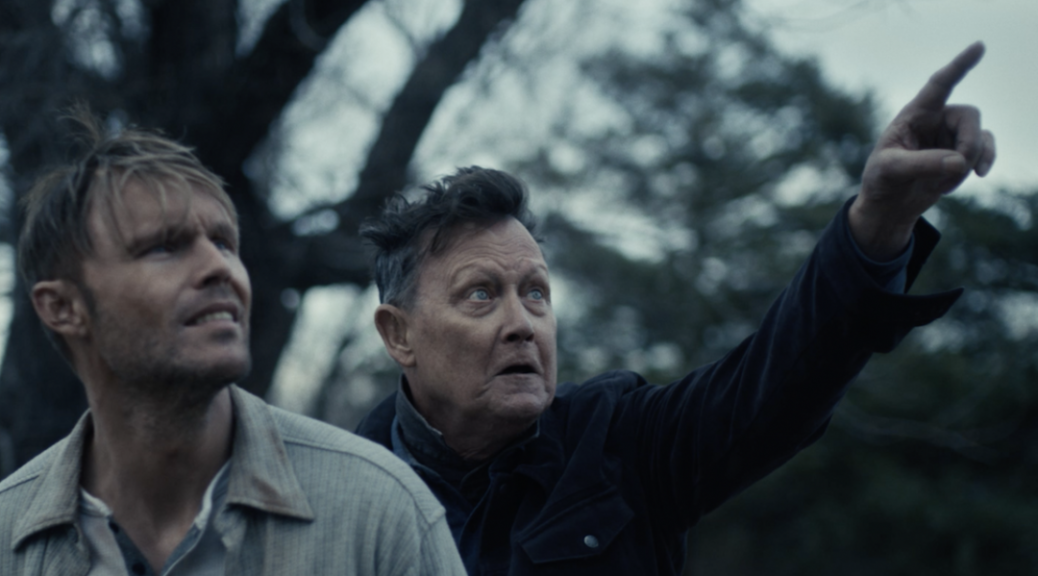What Josiah Saw
by Hope Madden
Just when you think you know where director Vincent Grashaw’s Southern Gothic What Josiah Saw is going, you meet Eli.
One at a time, Grashaw introduces us to the Graham children. At first, it’s poor Tommy (Scott Haze), a simple fella living at home with Graham patriarch, Josiah (Robert Patrick). Josiah doesn’t think much of Tommy. He doesn’t think much of God, either, but he’s having a change of heart.
Then Grashaw switches gears and introduces us to Tommy’s brother Eli (Nick Stahl), who lives hard. He’s run afoul of some bad people (including Jake Weber in a welcome cameo) and is in some pretty desperate straits. Finally, we meet sister Mary (Kelli Garner), whose trauma sits far nearer the surface and strengthens our unease about the inevitable family reunion.
The Grahams reunite, drawn by the lure of oil money: the Devlin corporation hopes to drill on their land. The money could mean a fresh start for everyone. But some details need to be handled first.
Moving from story to story, What Josiah Saw keeps you on your toes. Grashaw glides easily from one style to the next, although Eli’s gritty thriller storyline is the most intriguing. It feels more complete, less bait and switch, and benefits from Stahl’s naturalistic, resigned performance.
Not every episode works as well. The stones left unturned and strings left untied from one tale to the next, though, give the film a rich, dark present-day. From the outset it’s clear there’s a traumatic backstory waiting to be revealed, so it’s to Grashaw and writer Robert Alan Dilts’s credit that the messy present keeps pulling our interest.
Patrick delivers a strong turn, mean-spirited and commanding. He’s at the center of the mystery, the center of everybody’s trauma in a film mainly concerned with how you live with the marks left by your childhood.
Ambiguity in the third act is becoming a theme in horror this year. Alex Garland’s Men, the recent stalker horror Resurrection, and now, What Josiah Saw. Sometimes it’s brave to let the audience own the experience and make the call. More often, it feels indecisive or muddy. I’m not sure all the clues are here to help make the determination for What Josiah Saw, but even without proper closure, Grashaw paints a creepy picture.

